Processed Food Products
-
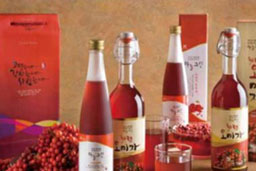 Omija
OmijaOmija is grown in the foothills of Gwangdeoksan Mountain, which is a clean zone of Cheonan. It has five different flavors: sweetness, sourness, spiciness, bitterness and saltiness. It is not only sold as fresh fruit, but also processed into concentrates, extracts and dried fruits for sale.
-
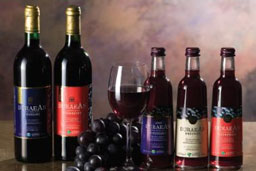 Cheonan Duraean Wine
Cheonan Duraean WineCheonan Duraean Wine is made by aging and fermenting The Geobong grapes for more than a year. It is made through an aging process that makes the wine taste more flavorful and less bitter so that it better suits the taste buds of Koreans and can be enjoyed by people of all ages.
-
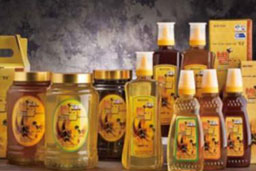 Haneulgrin Honey
Haneulgrin HoneyHaneulgrin honey is collected from the mountains in Cheonan. It is a natural, organic alkaline health food that is sufficiently aged to ensure that it is of the finest quality in terms of flavor and smell. It is a highly nutrious food that is directly absorbed by the body without undergoing any digestion or breakdown processes.
-
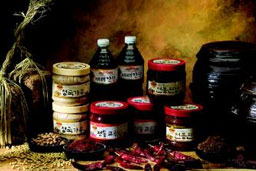 Cheonan Sauces (Barley Red Pepper Paste)
Cheonan Sauces (Barley Red Pepper Paste)Cheonan sauces are made using Aunae beans, cultivated in the clean zones. Cheonan sauce is made using a traditional method that has been passed down for many years. Cheonan barley red pepper paste, in particular, is made using the traditional method of using locally produced malt and barley.
-
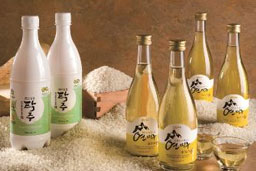 Cheonan Dosol Yeonmiju
Cheonan Dosol YeonmijuCheonan Dosol Yeonmiju is a type of traditional liquor that is produced by fermenting fresh Heungtaryeong rice and adding various types of medicinal herbs. Dosol Yeonmiju, made using a unique brewing method, leaves no unpleasant aftertaste and doesn’t cause any headaches or thirst afterwards. Also, it contains a lot of beneficial lactic acid bacteria.
-
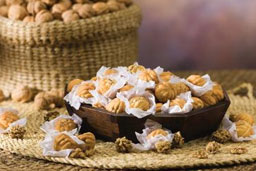 Cheonan Walnut Biscuits
Cheonan Walnut BiscuitsCheonan walnut biscuit has been a specialty product of Cheonan since 1930. It is widely loved in Korea for its savory flavor that stimulates the taste buds. It is being transformed into a premium well-being product based on the unique production system incorporate the Uri wheat and walnuts.
-
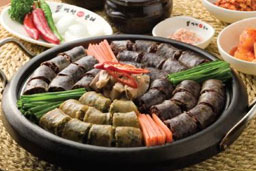 Cheonan Byeongcheon Sundae
Cheonan Byeongcheon SundaeCheonan Byeongcheon sundae (Korean sausages) is a food with 100 years of history. In the past, people used to make Korean sausage soup with rice at the 5-day Aunae market, and this particular area became lined with sundae restaurants over the years. At present, vegetables and clotted blood are used instead of cellophane noodles to make Byeongcheon sundae, and it gained fame nationwide for its delicious taste by word-of-mouth. When you go to Byeongcheon, you will be able to enjoy traditional Korean sausages every single day.
-
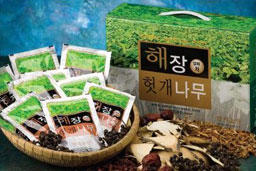 Cheonan Oriental Raisin Tree Tea
Cheonan Oriental Raisin Tree TeaCheonan oriental raisin tree tea is made using the fruits of oriental raisin trees grown in the clean zone of Eunseoksan Mountain. The made-to-order production system allows the producers to supply the healthful teas that suit the preferences of each customer.
-
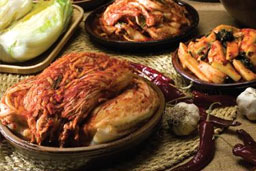 Cheonan Kimchi
Cheonan KimchiCheonan kimchi is made with ingredients that are produced domestically, using a secret recipe that has been developed over the past 20 years. The tasty kimchi made in a clean environment is also popular among the people of Japan, which is attested by the fact that its export has been growing over the years.











